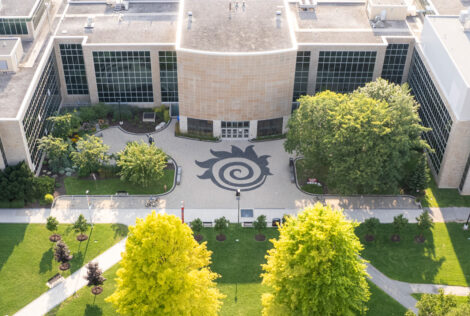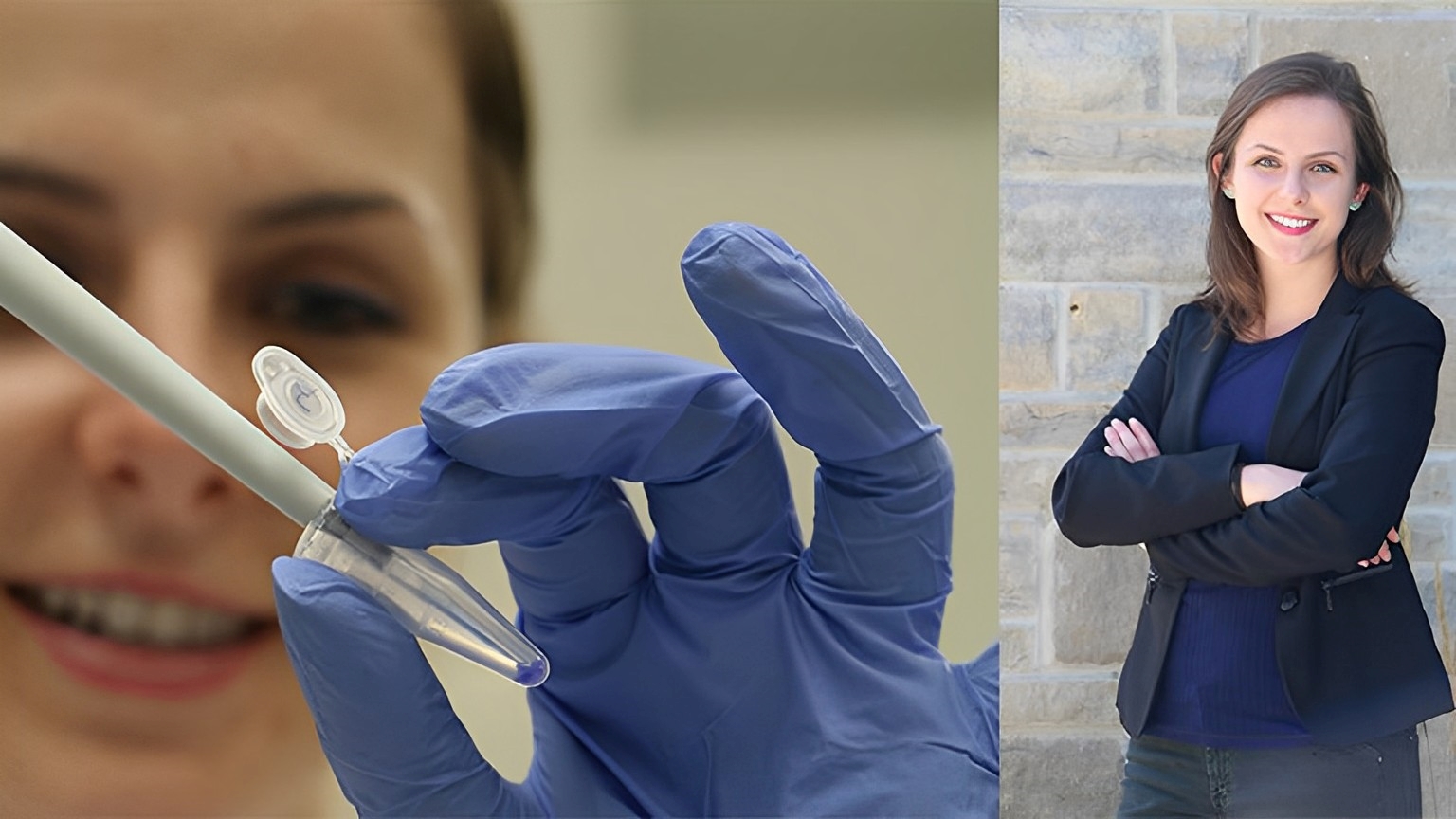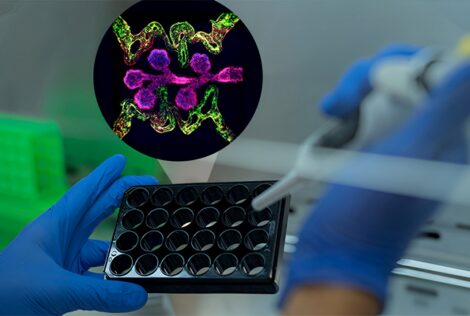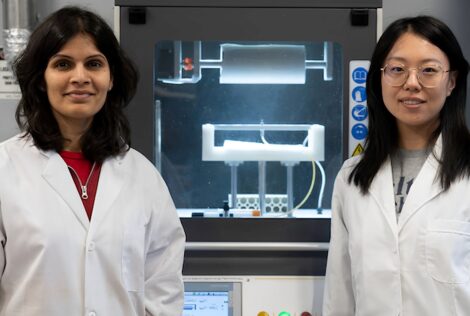

We often associate viruses with causing infections and illnesses, such as COVID-19. However some viruses, called therapeutic viruses, are increasingly used to treat genetic diseases as well as certain cancers.
Therapeutic viruses are produced in sophisticated bioreactors and must be isolated from impurities using a series of complex purification processes. Currently, purification processes are limited in performance and scale, driving up the cost of producing therapeutic viruses and curtailing the adoption of these promising new treatment strategies.
Karina Kawka, a PhD candidate in Chemical Engineering, is working within a multi-disciplinary team of McMaster engineers and researchers to ‘perfect’ a signature process for the purification of therapeutic viruses that is more effective and cheaper than those currently available, paving the way for new and more affordable treatments to reach patients with a variety of needs.
Kawka recently received the 2021 Student Fellowship Award from the North American Membrane Society (NAMS), the premier society on membrane science. This award is given to outstanding graduate students in the membrane science and technology field.
Kawka first began her training at McMaster in 2014 as an undergraduate exchange student from Brazil via the prestigious Science without Borders/Ciência sem Fronteiras scholarship program. She returned to McMaster in 2017 to start graduate studies under the co-supervision of David Latulippe and Raja Ghosh from the Department of Chemical Engineering.
Most of Kawka’s work to date, done in collaboration with the Fitzhenry Vector Laboratory team in the McMaster Immunology Research Centre, has been highly experimental in nature. This work has been published in leading journals in the separations field including a recent paper in Separation and Purification Technology. Kawka has also twice received an HQP Travel Award from BioCanRx, a Networks of Centres of Excellence program, to present her work at the 2018 and 2019 Summit for Cancer Immunotherapy meetings. She has also presented at the 2020 Soapbox Science project, a key event within McMaster’s mentorship conference for high school students interested in the STEM fields.
“Karina’s success reflects her top-notch creative problem-solving abilities, meticulous attention to detail, strong technical skills, and passion for research. She is truly an inspiration for the next generation of up-and-coming researchers and her work has so many timely and potentially field altering applications.” says Latulippe.
Kawka’s work has a direct link to the ongoing development of COVID-19 vaccines. Says Kawka: “The vaccine field may benefit from our research findings because the process of making viruses for gene therapy are very similar to when you’re making viruses for vector-based vaccines.”
Another of Kawka’s current research thrusts is to use simulation software to analyze the entire virus manufacturing process and determine the most cost-efficient scenario. This work is being done in collaboration with the UK-based company BioPharm Services. Kawka will present some of the early findings from that work next month at the annual meeting of the American Society of Gene & Cell Therapy.
This research was made possible through financial support from the Ontario Research Fund – Research Excellence Program and the Natural Sciences and Engineering Research Council of Canada (NSERC).


